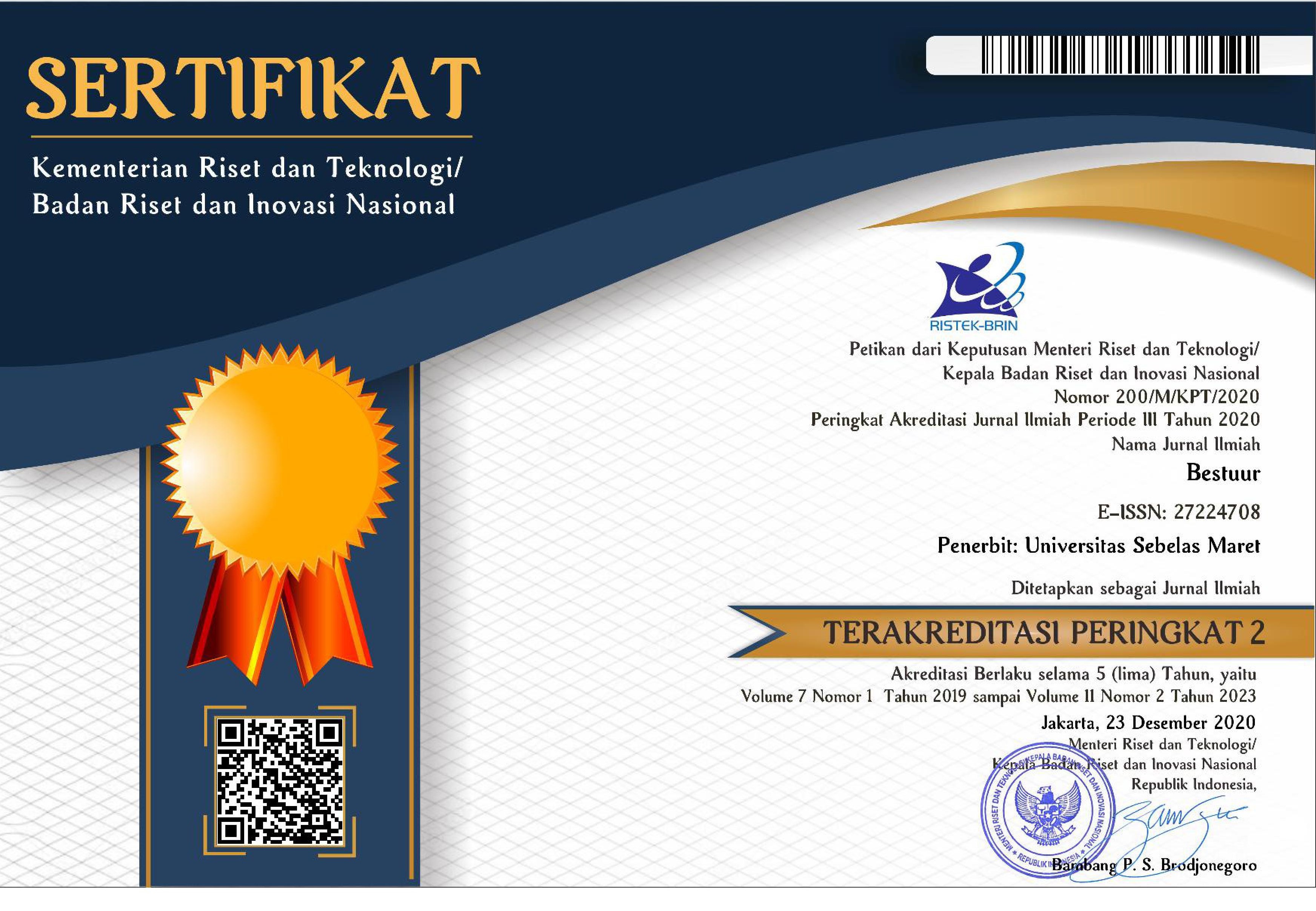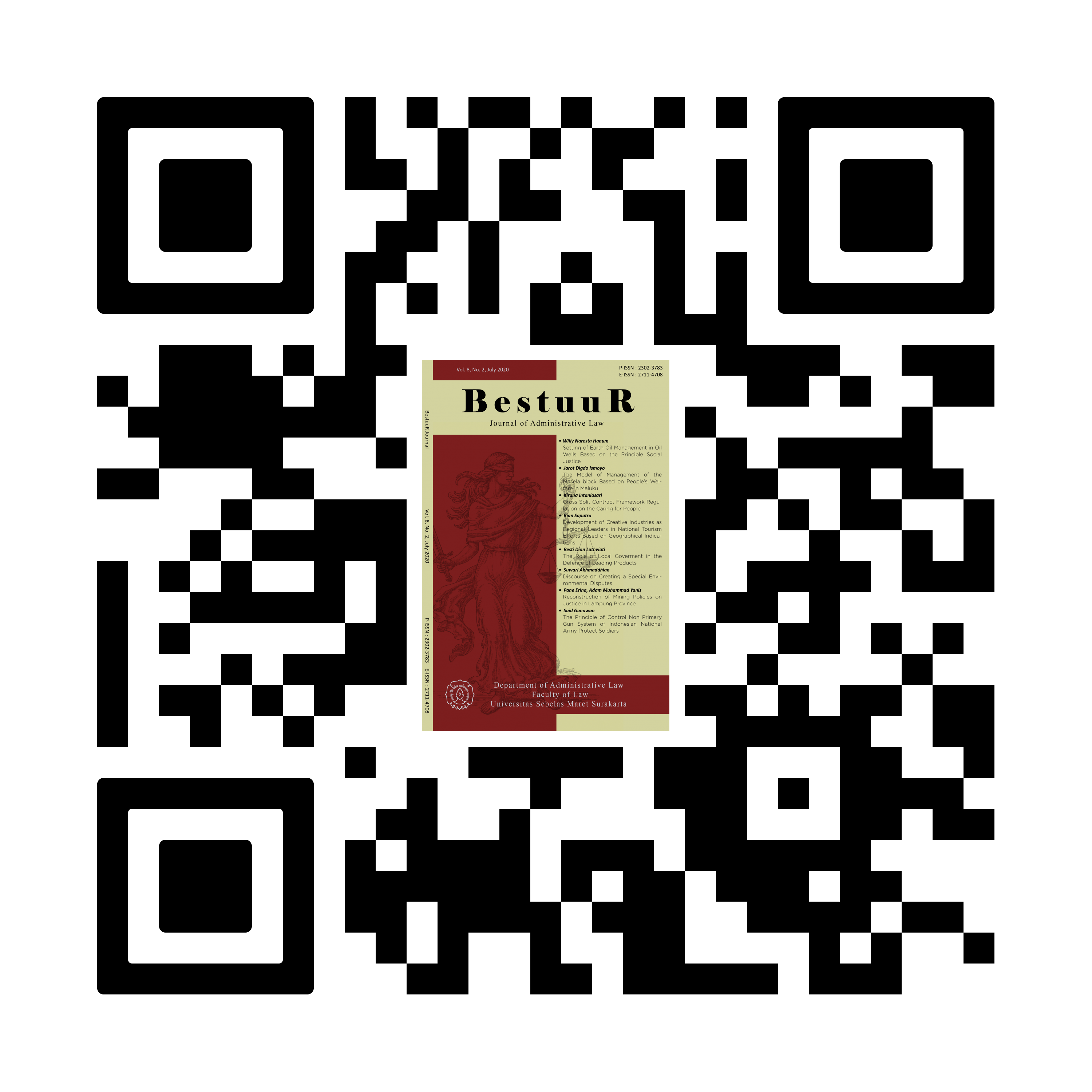A Critical Analysis of Causation Rules in Marine Insurance
Abstract
The United Kingdom has regulated Marine Insurance in great detail in some laws and regulations, but these regulations do not seem to have been fully implemented. This study will discuss the Causation Rules in Marine Insurance. More specifically, this article has looked at the impact of the development of the causation rules in marine insurance after implementing MIA 1906. This study argues that the efficiency test is now be regarded as a historical precedent of the causation rules. What is clear is that the operation of the efficiency test alters the rule which previously relied on a question of law by looking at the latest cause of the loss to recognize a question of fact by measuring the most predominant cause of the loss. However, it does not mean that the newest cause of the loss is automatically disregarded. An immediate cause may be proximate if it has an efficient and predominant effect to cause the loss.
Keywords
Full Text:
PDFReferences
Abaei, M. M., Arzaghi, E., Abbassi, R., Garaniya, V., Chai, S., & Khan, F. (2018). A robust risk assessment methodology for safety analysis of marine structures under storm conditions. Ocean Engineering, 156, 167–178. https://doi.org/10.1016/j.oceaneng.2018.02.016
Abbott, J. K., & Holland, D. S. (2013). Protecting marine ecosystems in fishery regulation. In J. F. Shogren (Ed.), Encyclopedia of Energy, Natural Resource, and Environmental Economics (pp. 206–214). Elsevier. https://doi.org/10.1016/B978-0-12-375067-9.00049-8
Akyuz, E. (2015). A hybrid accident analysis method to assess potential navigational contingencies: The case of ship grounding. Safety Science, 79, 268–276. https://doi.org/10.1016/j.ssci.2015.06.019
Appleby, T., Studley, M., Moorhouse, B., Brown, J., Staddon, C., & Bean, E. (2021). Sea of possibilities: Old and new uses of remote sensing data for the enforcement of the Ascension Island marine protected area. Marine Policy, 127, 103184. https://doi.org/10.1016/j.marpol.2018.06.012
Chen, P., Huang, Y., Mou, J., & van Gelder, P. H. A. J. M. (2019). Probabilistic risk analysis for ship-ship collision: State-of-the-art. Safety Science, 117, 108–122. https://doi.org/10.1016/j.ssci.2019.04.014
Dupré, D., & Perluss, P. (2016). Mastering risks: An illusion: Truth and tropes on jeopardy. Research in International Business and Finance, 37, 620–628. https://doi.org/10.1016/j.ribaf.2015.12.001
Feichtner, I. (2020). Contractor liability for environmental damage resulting from deep seabed mining activities in the area. Marine Policy, 114, 103502. https://doi.org/10.1016/j.marpol.2019.04.006
Fu, G., Xie, X., Jia, Q., Li, Z., Chen, P., & Ge, Y. (2020). The development history of accident causation models in the past 100 years: 24Model, a more modern accident causation model. Process Safety and Environmental Protection, 134, 47–82. https://doi.org/10.1016/j.psep.2019.11.027
Hee, D. D., Pickrell, B. D., Bea, R. G., Roberts, K. H., & Williamson, R. B. (1999). Safety Management Assessment System (SMAS): a process for identifying and evaluating human and organization factors in marine system operations with field test results. Reliability Engineering & System Safety, 65(2), 125–140. https://doi.org/10.1016/S0951-8320(98)00095-7
Kar, A. K., & Navin, L. (2021). Diffusion of blockchain in insurance industry: An analysis through the review of academic and trade literature. Telematics and Informatics, 58, 101532. https://doi.org/10.1016/j.tele.2020.101532
Krauss, A. D. (2021). Chapter 16 - Effect of climate change on the insurance sector. In T. M. Letcher (Ed.), The Impacts of Climate Change (pp. 397–436). Elsevier. https://doi.org/10.1016/B978-0-12-822373-4.00014-8
Leong, S. H., Pellegrini, C. B., & Urga, G. (2020). The contribution of shadow insurance to systemic risk. Journal of Financial Stability, 51, 100778. https://doi.org/10.1016/j.jfs.2020.100778
Lonergan, M. (2011). Potential biological removal and other currently used management rules for marine mammal populations: A comparison. Marine Policy, 35(5), 584–589. https://doi.org/10.1016/j.marpol.2011.01.020
NG, J. M. J. (2010). No Title. The Asian Journal of Shipping and Logistics, 26(1), 181–184. https://doi.org/10.1016/S2092-5212(10)80017-3
Nwafor, N. A., & Walker, T. R. (2020). Rethinking marine insurance and plastic pollution: food for thought. Resources, Conservation and Recycling, 161, 104950. https://doi.org/10.1016/j.resconrec.2020.104950
Sabela-Rikhotso, P. T. Z., van Niekerk, D., & Nemakonde, L. D. (2021). A critical analysis of the legal frameworks governing oil spill management in South Africa. Marine Policy, 127, 104433. https://doi.org/10.1016/j.marpol.2021.104433
Sheng, X. U., Lu, B., & Yue, Q. (2021). Impact of sci-tech finance on the innovation efficiency of China’s marine industry. Marine Policy, 133, 104708. https://doi.org/10.1016/j.marpol.2021.104708
Stebbings, E., Papathanasopoulou, E., Hooper, T., Austen, M. C., & Yan, X. (2020). The marine economy of the United Kingdom. Marine Policy, 116, 103905. https://doi.org/10.1016/j.marpol.2020.103905
Tiller, R., & Richards, R. (2018). Ocean futures: Exploring stakeholders’ perceptions of adaptive capacity to changing marine environments in Northern Norway. Marine Policy, 95, 227–238. https://doi.org/10.1016/j.marpol.2018.04.001
Van den Bergh, J. C. J. M., Nunes, P. A. L. D., Dotinga, H. M., Kooistra, W. H. C. F., Vrieling, E. G., & Peperzak, L. (2002). Exotic harmful algae in marine ecosystems: an integrated biological–economic–legal analysis of impacts and policies. Marine Policy, 26(1), 59–74. https://doi.org/10.1016/S0308-597X(01)00032-X
Zheng, H., Shang, M., & Zhao, X. (2020). Chinese policy on fishery insurance: Evolution, characteristics and challenges. Marine Policy, 119, 104099. https://doi.org/10.1016/j.marpol.2020.104099
DOI: https://doi.org/10.20961/bestuur.v9i2.55165
Refbacks
- There are currently no refbacks.
Copyright (c) 2021 Bima Manopo, Robert Merkin QC

This work is licensed under a Creative Commons Attribution 4.0 International License.
|











_CROSREF.jpg)




